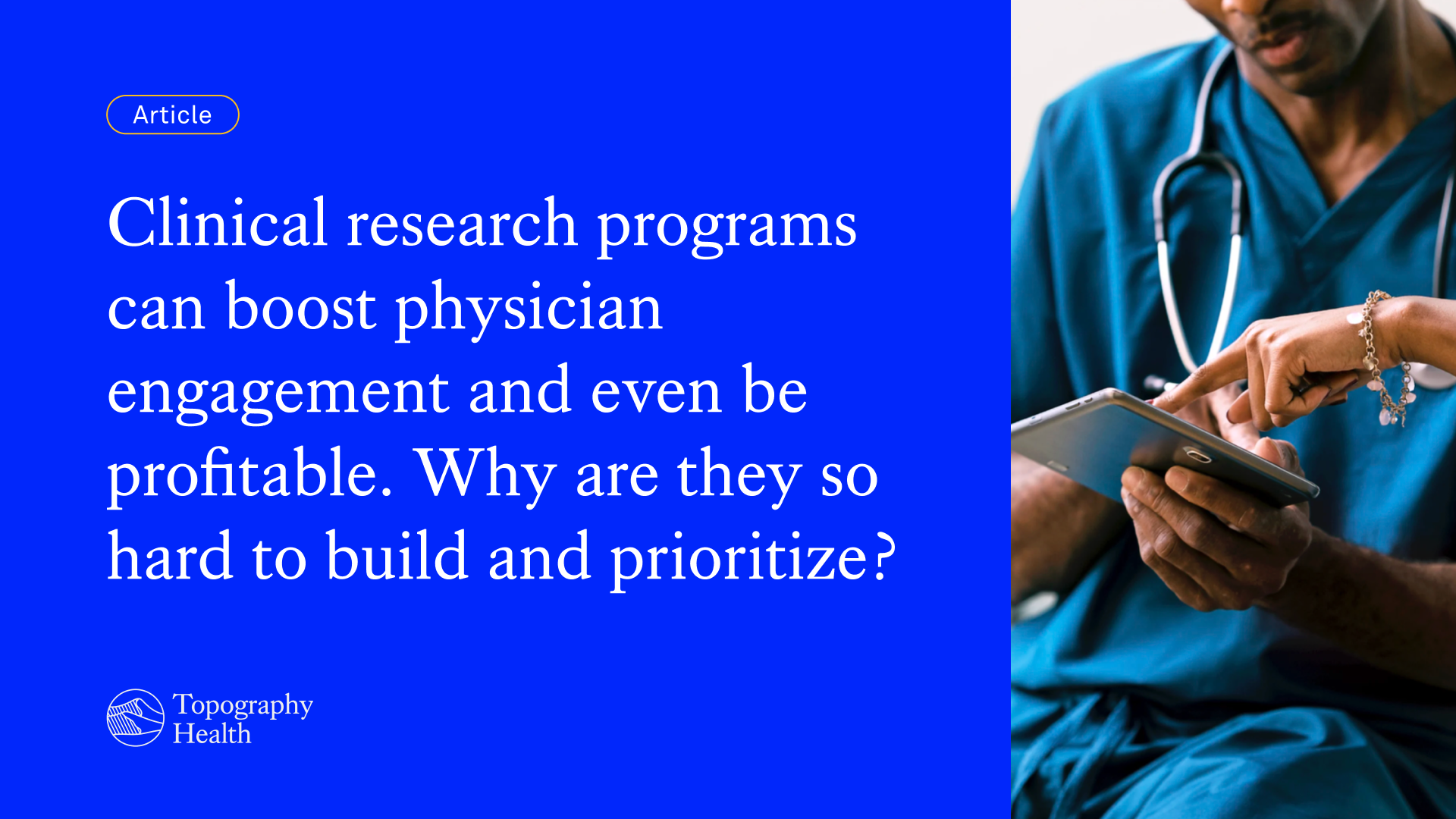An Interview with Principal Investigator Dr. Kenolisa Onwueme, MD, PhD, Woodholme Gastroenterology Associates
Dr. Kenolisa (Keno) Onwueme has over 15 years of experience in life sciences research and clinical practice. After graduating from Yale University and Weill Cornell Medical College, Dr. Onwueme completed his Internal Medicine residency at Brigham and Women’s Hospital and his Gastroenterology fellowship at Johns Hopkins University. At Maryland's Woodholme Gastroenterology Associates Dr. Onwueme focuses on gut microbiology infections, bowel motility disorders, and autoimmune and inflammatory bowel diseases. He leads the practice’s clinical trials program.
Can you tell us a bit about your career journey, particularly as it relates to research?
My career began with a strong focus on basic science, particularly synthetic organic chemistry. Over time, my interests evolved towards molecular biology and microbiology, leading me to pursue a PhD where I focused on tuberculosis cell wall biosynthesis. During residency, I faced a critical decision about my career path, as many do. While I had always envisioned combining clinical practice with translational science, I deeply enjoyed hands-on procedures, which drew me toward gastroenterology. It offered the right balance of cerebral work and practical application, which I found, and still find, very fulfilling.
How did you end up at Woodholme GI?
Well, after I completed a research-focused fellowship at Johns Hopkins, I decided to pursue a clinical path, which led me to join Woodholme. At the time, we had no established clinical trials program despite several past attempts, and I saw this as both a challenge and an opportunity. My research background naturally aligned with this goal, and it became a passion of mine to build a successful clinical trials program at the practice. This was a significant shift in my career — the opportunity to blend my passion for scientific inquiry with a commitment to patient care.
What challenges did Woodholme face with its clinical trials program?
Woodholme had tried multiple times over two decades to start a quality clinical trials program, but it never fully launched. The main obstacles were the significant time commitment and the challenges in finding a physician willing to reallocate their focus to the trials program. This is fairly common among practices, even successful ones like Woodholme with a strong bench of GIs, and it's why Topography is such a game changer. The reality is that you can’t take shortcuts, and many who try to run trials are tempted to, but that doesn't lead to a sustainable, large-scale research initiative, like the one we’ve been able to build.
How did you decide to partner with Topography and has your clinical trials program evolved?
As our program expanded, we were offered more studies than we could handle. We were struggling to find qualified staff, especially during the COVID-19 pandemic. That's when we began conversations with Topography, and they revolutionized our approach to trials. They’ve been a great partner, managing all the thorny logistical and operational aspects that come with trials, which has allowed us to focus on the clinical work and providing quality patient care. Before Topography, we had a proof of concept that showed this could work. But scaling that concept and turning it into the success we envisioned wouldn’t have been possible without them. We’ve gone from just me and a coordinator to over 30 active trials today.
What are the most important aspects of a successful trials program in your view?
In my view, the key aspects of a clinical trials program are ensuring that what you’re offering to patients has real value, balancing that with sponsor and trial team goals, and maintaining long-term commitment. For example, when we started running NASH trials, there were very few treatment options available, so offering patients an alternative where none existed was extremely valuable. It’s essential to balance the needs of patients, sponsors, and the trials team, but the patient’s experience must always be the priority. Clinical trials often have long timelines before results are seen, so it’s also critical to stay consistent and committed. Staying on track over time and achieving that consistency is one area where Topography has been extremely helpful.
What types of studies are you currently working on at Woodholme?
We’re active in interventional and non-interventional studies across the GI pathology landscape. This includes areas such as inflammatory bowel diseases (IBD), like Crohn's disease and ulcerative colitis. Pharmaceutical companies are exploring new mechanisms to treat these conditions. We're also involved in studies on metabolic associated fatty liver disease (formerly called non-alcoholic fatty liver disease), where the goal is to prevent progression to cirrhosis. Eosinophilic esophagitis is also a condition for which we have an active study. Additionally, we participate in non-interventional studies like colon cancer screening trials assessing the utility of biomarkers.
How has being involved in research helped to shape your career and day-to-day experience as a physician? What about the rest of your team?
For me, it’s been very intellectually rewarding and engaging to see the research program grow and contribute to the development of new therapies. It has kept me engaged cerebrally and has allowed me to participate in both clinical care and research, which is what I had hoped to achieve when I started my career. Among my colleagues, initially there wasn't as much interest as one would’ve desired. Many were focused on their day-to-day clinical duties. However, over time, the program’s success has led to more appreciation and generated more interest. Our research program has even become a key recruitment tool for new physicians, especially those with academic backgrounds.











